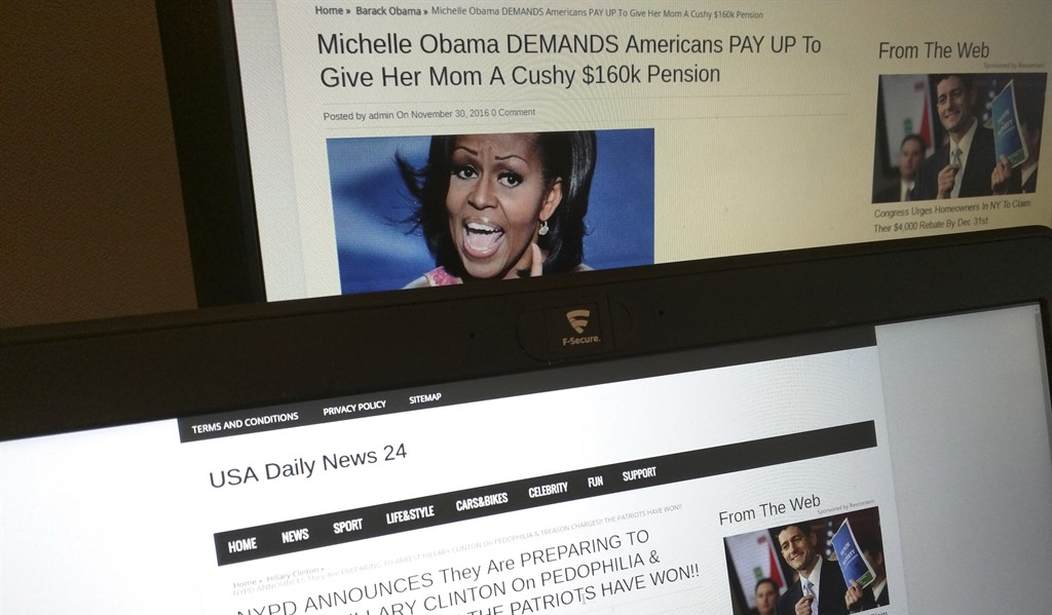There’s no doubt that if you spend much time on the internet, you’re going to be buried in an avalanche of false claims, exaggerations, conspiracy theories with no basis in fact, and outright, bald-faced lies from politicians of the right, left, and center.
The “Information Age” has become a nightmare from which we are unable to awaken. As it turns out, there is, indeed, such a thing as too much information. We are all forced to selectively filter what information we process, resulting in our natural biases playing a large role in what information we actually absorb.
Take the border crisis. Whom do you believe? Whose opinion do you trust? Whose facts can you rely on?
Is anything “true”?
Yet yesterday, President Joe Biden stood before the American public and insisted that “nothing has changed,” and that everything we were seeing — to the extent the Biden administration is allowing the public to see it — was normal: “Truth of the matter is nothing has changed. As many people came, 28 percent increase in children to the border in my administration. 31 percent in the last year of — in 2019, before the pandemic, in the Trump administration. It happens every single solitary year. There is a significant increase in the number of people coming to the border in the winter months of January, February, March.”
That’s a lie. Not a misstatement of fact. We have a record number of people coming to the border — 45 percent above the highest year on record. That makes it a crisis to all but the hackiest partisan out there.
Our large and respected institutions — the mainstream media, big tech companies, the heights of academia, think tanks such as the Aspen Institute — are well-practiced and on guard to spot and dispel any misinformation that comes from the right side of the political spectrum. But they either don’t see, don’t care, fear confronting, or support misinformation that comes from the left side of the political spectrum.
When one side claims ownership of the truth and then deliberately — or unconsciously — subverts it by being guilty of the same sins they accuse the other side of committing, society is in deep trouble.
But we also have to deal with much bigger, much more prestigious voices who tell us Andrew Cuomo’s “competent and, at times, charismatic handling of the coronavirus crisis in his state has made him one of the most popular politicians in America today.” And the credulous coverage of that Florida Grim Reaper guy, who argued that people were taking reckless risks with others’ lives by going to the beach. And the nonsensical claims of the so-called “top scientist” leading Florida’s pandemic response, who has held three jobs in her field, with all three ending in her being terminated and criminally charged. And that Georgia’s decision to allow gyms, churches, and hair and nail salons to reopen represented an “experiment in human sacrifice.”
Information is more than facts and opinions. It is words and ideas. And in the hands of a clever wordsmith, up can appear to be down, black can look like white, and ideas can be twisted and manipulated to serve whatever master is paying for it.
It’s not propaganda. It’s cultural negligence.
Where’s the misinformation? It’s like Palmolive; you’re soaking in it. And I would argue that disinformation in the form of widely held conventional wisdom that turns out to be inaccurate — Andrew Cuomo is doing a great job, stricter lockdowns with tougher enforcement are better lockdowns, schools can’t be opened without a massive outbreak that will kill lots of people — often turns out to have worse consequences than the kind of disinformation that is most commonly discussed — e.g. your Aunt Edna sharing a false Facebook story that Bill Gates is putting microchips in vaccines. The crazy claims from random people on social media get a lot of pushback, almost immediately. The conventional wisdom from political and cultural elites gets challenged far less often and far less quickly.
I used to think reading a wide variety of opinions on any issue would serve to cut through the bias and expose the essence of truth. But it’s hard, brutal work and it’s getting harder and harder to find a wide range of opinions about anything. It’s so much easier to get your opinions manufactured by someone else and simply adopt them as your own. It may be “misinformation,” but you’ll only hear that if it doesn’t conform to the dominant narrative at the time.










Join the conversation as a VIP Member